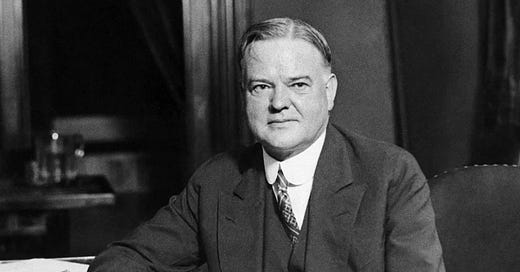"Blessed are the young, for they shall inherit the national debt"
Herbert Hoover
The quote, "Blessed are the young, for they shall inherit the national debt," is attributed to Herbert Hoover, the 31st President of the United States, born on 10th August 1874. Hoover, who served as president from 1929 to 1933 during the onset of the Great Depression, was known for his wit and dry humor, often delivering pointed observations about the state of the nation and its future.
This quote reflects Hoover's concern about the economic burdens being passed down to future generations. The phrase "blessed are the young" is an ironic twist on traditional expressions of hope and optimism for the youth. Typically, youth are considered blessed because they have their whole lives ahead of them, full of potential and opportunities. However, Hoover turns this idea on its head by pointing out that the young will also inherit the national debt, a burden that threatens to overshadow their opportunities.
In Hoover's time, the national debt was a growing concern, particularly as the government grappled with the financial strains of the Great Depression. Hoover, an advocate of fiscal responsibility, was critical of excessive government spending and borrowing, fearing that it would place an undue burden on future generations. This quote underscores the idea that the decisions made by one generation, especially in terms of fiscal policy, have long-lasting consequences for those that follow.
The sentiment expressed in this quote remains relevant today, as debates over national debt and fiscal responsibility continue to be central issues in economic policy. Hoover’s words serve as a reminder of the importance of considering the long-term impact of financial decisions. The national debt is not just an abstract figure; it represents real obligations that will have to be managed by future generations, potentially limiting their economic freedom and opportunities.
Moreover, Hoover's quote touches on a broader theme of intergenerational responsibility. It challenges the current generation to think about the legacy they are leaving behind and to consider the fairness of passing significant financial burdens onto their children and grandchildren. The quote is a call to action for responsible governance and careful stewardship of resources, emphasizing that the choices made today will shape the world that the young will inherit.
In essence, Hoover’s quote is a sobering reminder of the impact of economic policies on future generations, urging a balance between addressing immediate needs and ensuring long-term sustainability.




